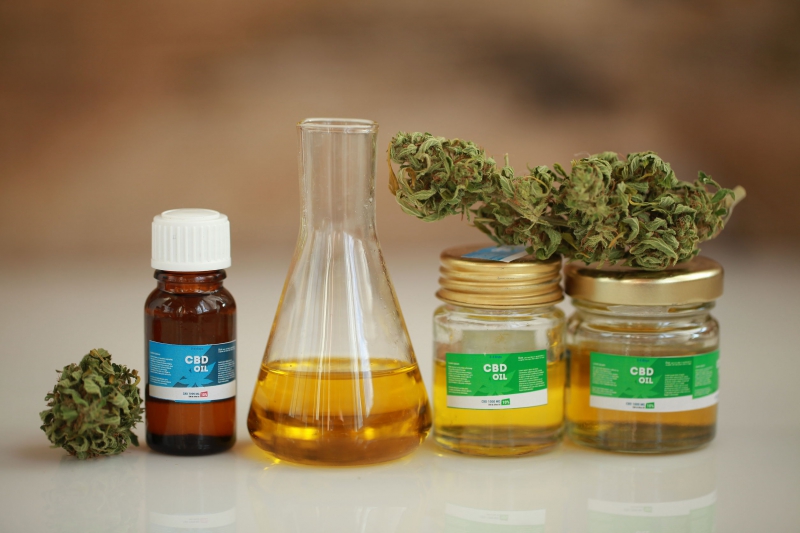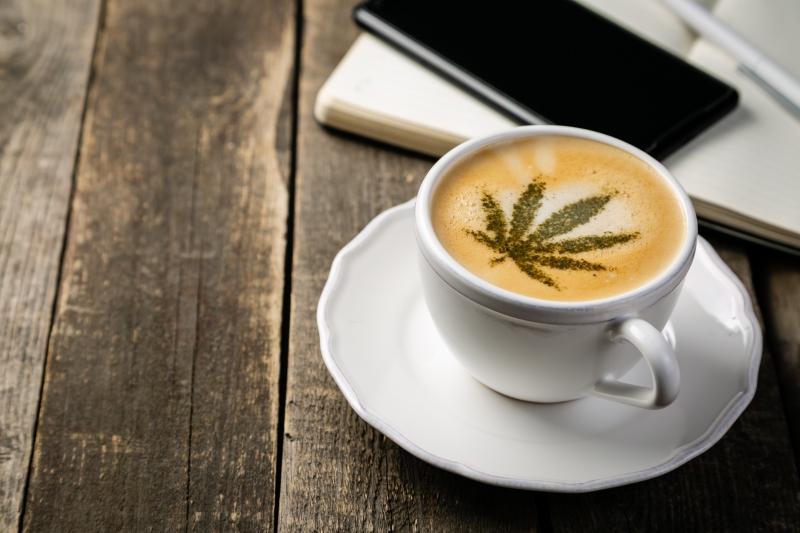In the latest on shelf edition of The Coffee Magazine, Jazz Kushcke investigates the growing CBD Oil and Coffee industry, you can get your hands on a copy from any of these fine establishments. In this follow up, he asks the experts to clarify some common misconceptions about CBD.

As cannabis is ever faster being adopted for its medicinal value in South Africa, and, its derivatives making their way into products such as coffee, we thought it crucial to de-stigmatise the plant by debunking a few commonly-held mistruths.
CBD (or cannabidiol) is a cannabinoid derived from the cannabis plant. “Unlike THC (tetrahydrocannabinol) however, it has no psycho-stimulant properties.” CBD can be extracted from either of the cannabis sativa species - hemp or marijuana (there are countless cultivars of each). Both come from the cannabis family but hemp plants typically contain less than 0.3 percent THC, while marijuana plants contain higher (and varying, depending on variant) concentrations of THC. CBD is the cannabinoid most commonly used in food and wellness products. Read more about CBD-infused coffee in our Spring 2019 issue, on shelf now.
While it is possible to become psychologically dependant on THC-containing cannabis products, the likelihood of developing an addiction (even for the psychoactive elements of cannabis) is far less than to that of other socially acceptable substances such as alcohol and tobacco. That is THC, CBD (and other non-psychoactive elements of cannabis) may be habit forming are not known to addictive. “In fact,” says Tony Budden, who heads up Government relations and Development at Canopy Growth and was co-founder of Hemporium, “the WHO recently declared that there is no risk of abuse of CBD.”
The history of cannabis is a long and very interesting one. We won’t bore you with too many details, but know this: Examples of the use of cannabis products for medicinal purposes have been found dating back as far as 4000 BC. Archeological studies show the plant may have been used as something of an anaesthetic in what is now the Czech Republic; for nutrition by certain tribes in Siberia and seeds were even found in the volcanic ashes of Pompeii. And, according to Budden, also exists in one of the earliest Chinese Pharmacopoeia.
Those are but a few examples. Of course, the wellness industry is still an ‘industry’ and profits are what most companies are after. CBD and other cannabis products may be caught up in this wave but at the bottom line it is not a gimmick. What is important, is to know what you are buying. Which brings us to the next point
Like many other health and wellness products, it is very easy for a company to simply label a product as containing CBD. However, you as consumers should be armed with knowledge of quality and dosages before purchasing any CBD products. The CBD-infused coffees featured in our Spring issue article all have certificates of analysis which go out to all suppliers and coffee shops, showing exactly what and how much of it, is in each serving. “A regulated industry is very important to ensure the quality of products and safety of consumers,” Budden says.
In September 2018, the Constitutional Court ruled that it is not a criminal offence for an adult citizen to use, possess or grow cannabis in private for personal consumption in South Africa.
In addition cannabis products considered to be ‘health supplements’ (with no medical claims), have recently been exempted from the medicines and related substances act. This, as long as they contain a daily dose less then than 20mg cannabidiol (CBD), as well as those containing less than 0.001% of THC.
These products, as with CBD-infused coffee may be bought and sold relatively freely as a result of the exemption published in the Government Gazette on 23 May 2019. The ‘exemption’ has perhaps created a semi false impression among South Africans that the cannabis market is suddenly opening up to ‘all’ products. “There is progress however,” says Budden. “There is engagement between civil society, the regulators, parliament and the industry to further open up the cannabis industry for the benefit of all South Africans.”
This exemption carries limitations however. It applies only for 12 months and is intended to create an opportunity for the fledgling cannabis industry to engage on a legal framework going forward. The ‘change’ in the law comes with two conditions. One, suppliers can’t sell products that contain more than 20mg of CBD and two, these products can’t claim to cure or treat any specific condition. There is progress however and we hope you enjoy your next brew.
